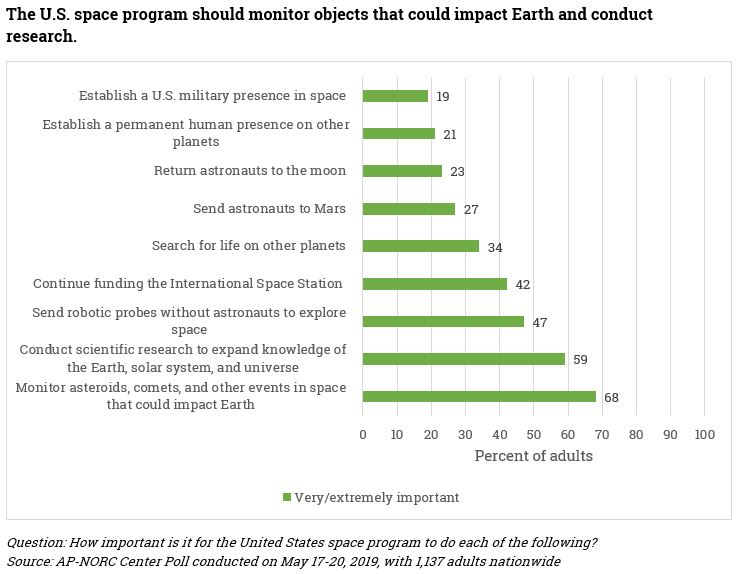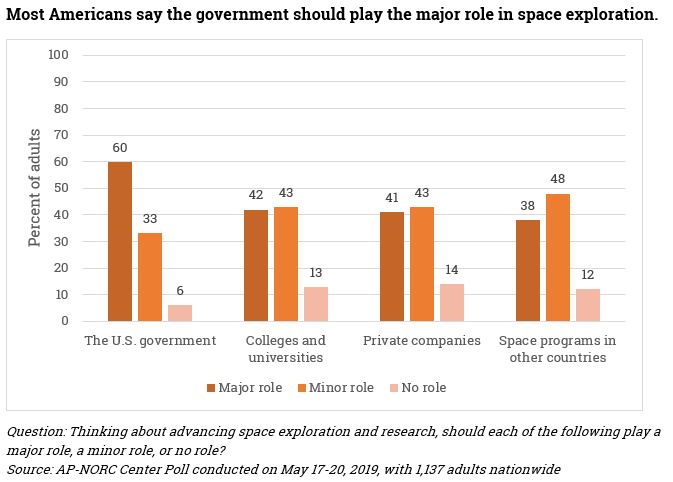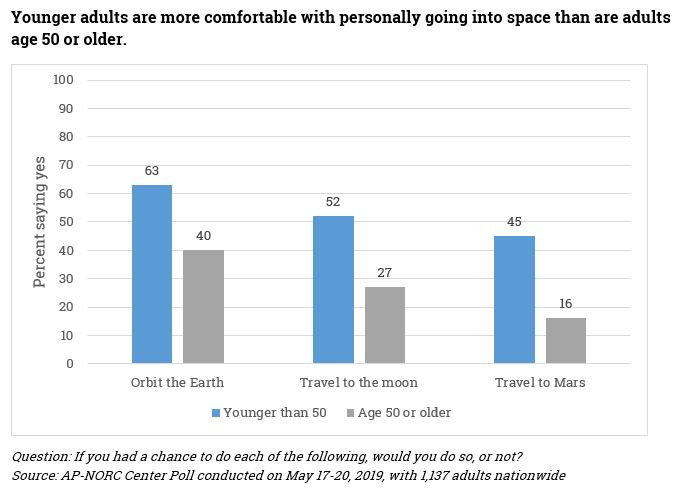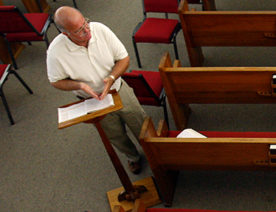
Ahead of the 50th anniversary of the U.S. moon landing, 60% say the space program has provided enough benefit to the country to justify its cost, while 38% do not consider the country’s expenditures on the space program warranted.
Most Americans say it is important for the space program to monitor objects including asteroids, comets, and other objects that could impact the Earth, as well as scientifically research the universe, our solar system, and the Earth. On the other hand, the establishment of permanent human settlements on other planets or developing an American military presence in space are not considered priorities.

More than 80% say the United States is not leading the world in space exploration. Sixty-four percent say the United States is one of several prominent nations in the field, while 17% say it is not a leading force at all. Another 17% regard the United States as the top country in space exploration.
Still, most Americans say the federal government should be mostly responsible for space research and exploration, with academia, private companies, and other countries playing a lesser role.

There is not overwhelming enthusiasm for returning to the moon. In March, Vice President Mike Pence called for NASA to send astronauts to the moon within five years.[1] Forty-two percent favor that idea, while 20% oppose and 38% neither favor nor oppose.
Thirty-seven percent say sending astronauts to Mars should take precedence over going back to the moon, while 18% would rather have NASA send more astronauts to the moon. But 43% do not think either action should be a priority for the country.
While about half of Americans would take the opportunity to orbit the Earth, most say they have no interest in traveling to the moon or Mars. Space travel has more appeal for younger adults.

Of the 31% who would take the opportunity to travel to Mars, less than half of them would travel to Mars if there was no chance of returning to Earth.
Three-quarters of Americans think life exists elsewhere in the universe; that includes 65% who believe there is extraterrestrial intelligent life. Americans age 50 and older are less likely than younger adults to believe life exists elsewhere (80% vs. 68%).
The nationwide poll was conducted May 17-20, 2019, using the AmeriSpeak® Panel, the probability-based panel of NORC at the University of Chicago. Online and telephone interviews using landlines and cell phones were conducted with 1,137 adults. The margin of sampling error is plus or minus 4.1 percentage points.



